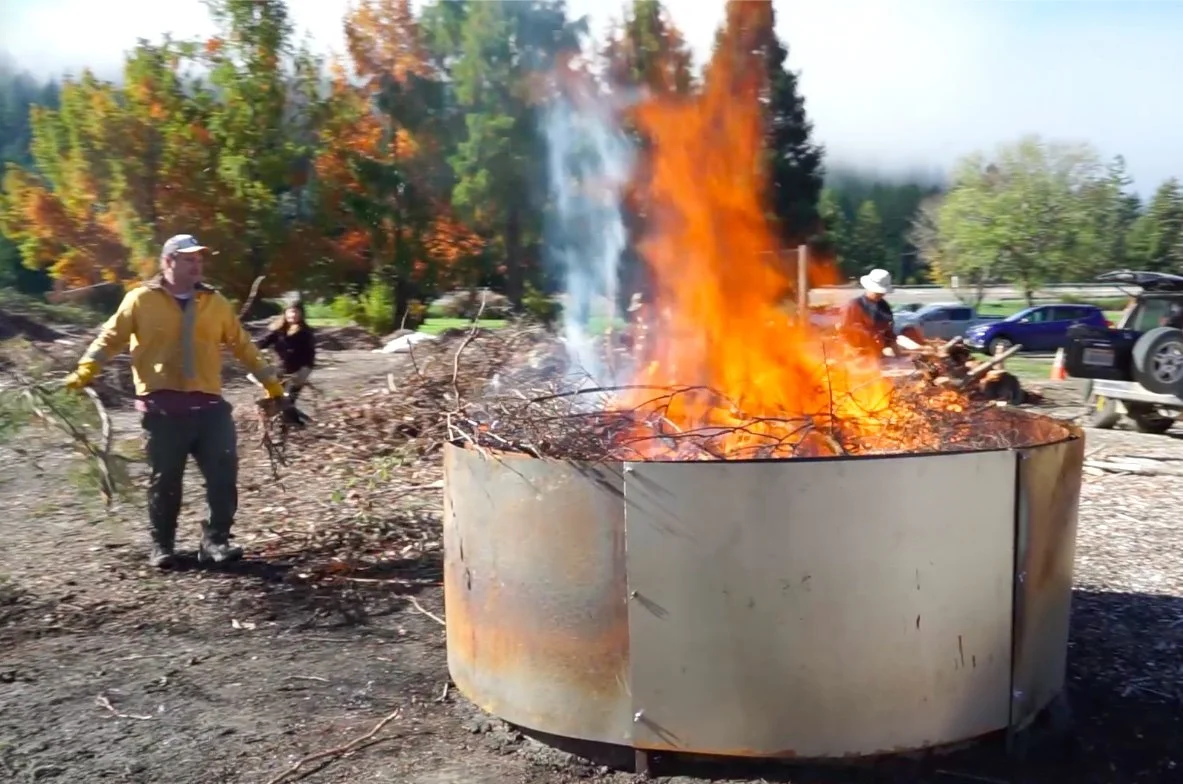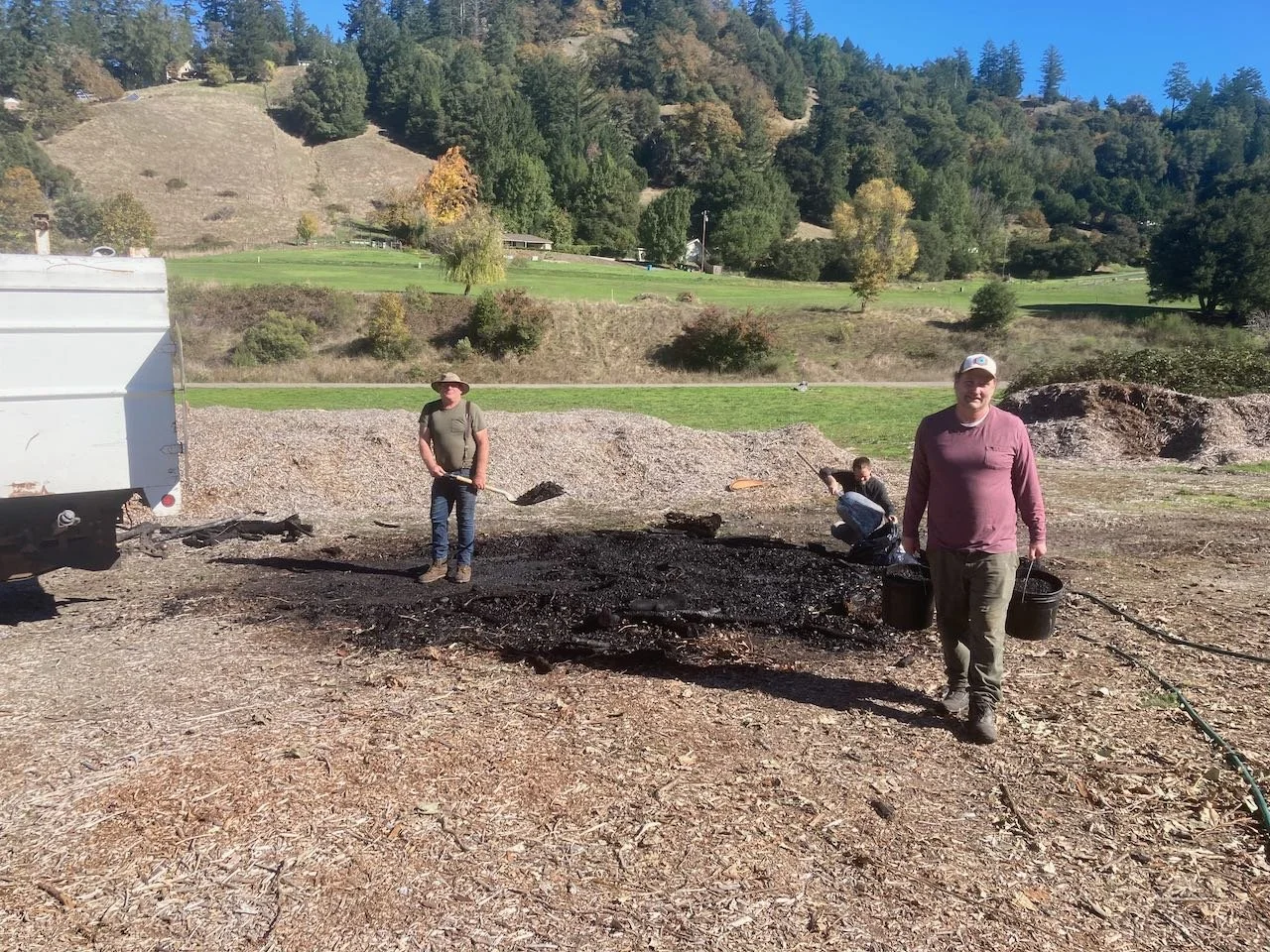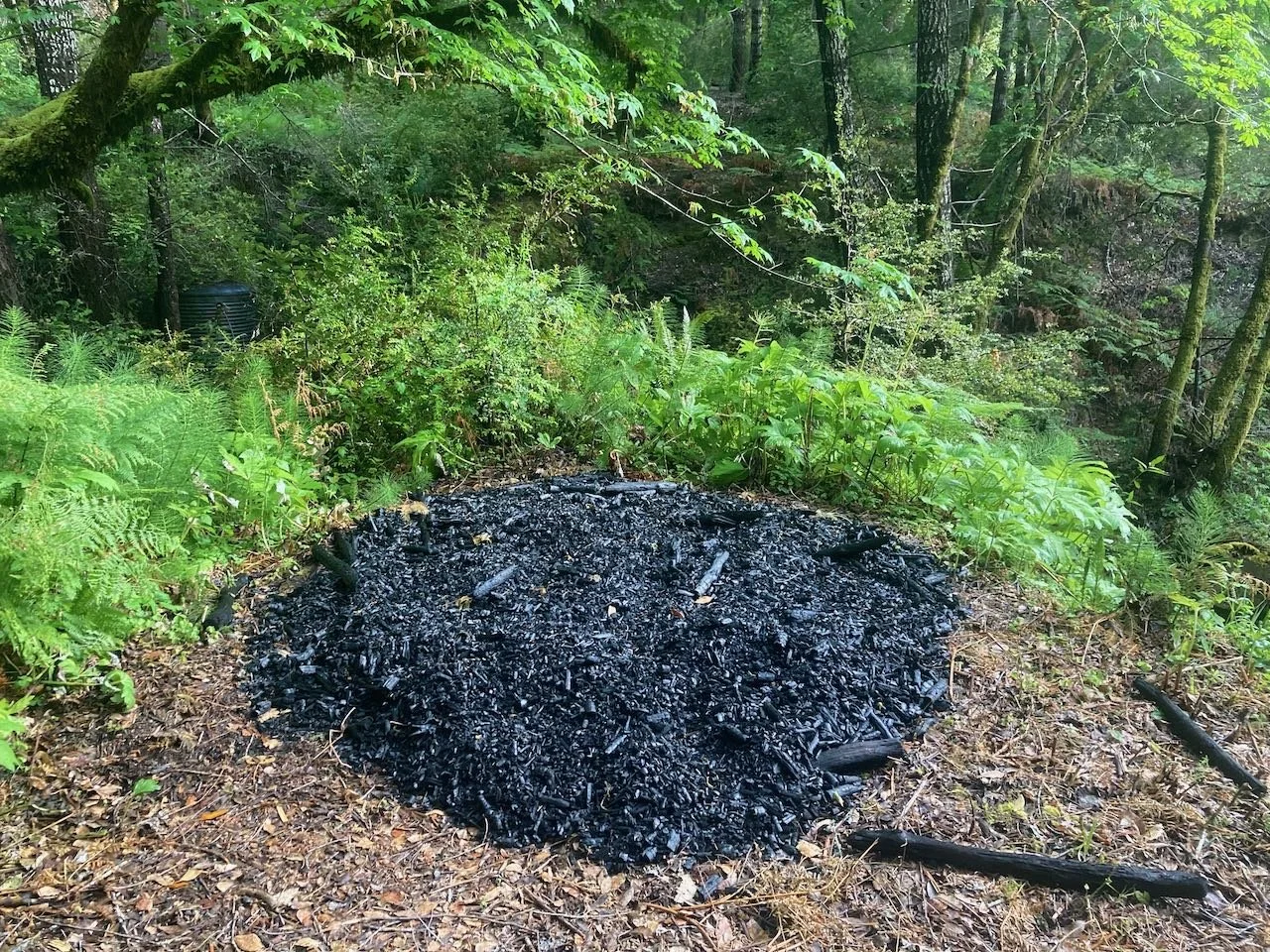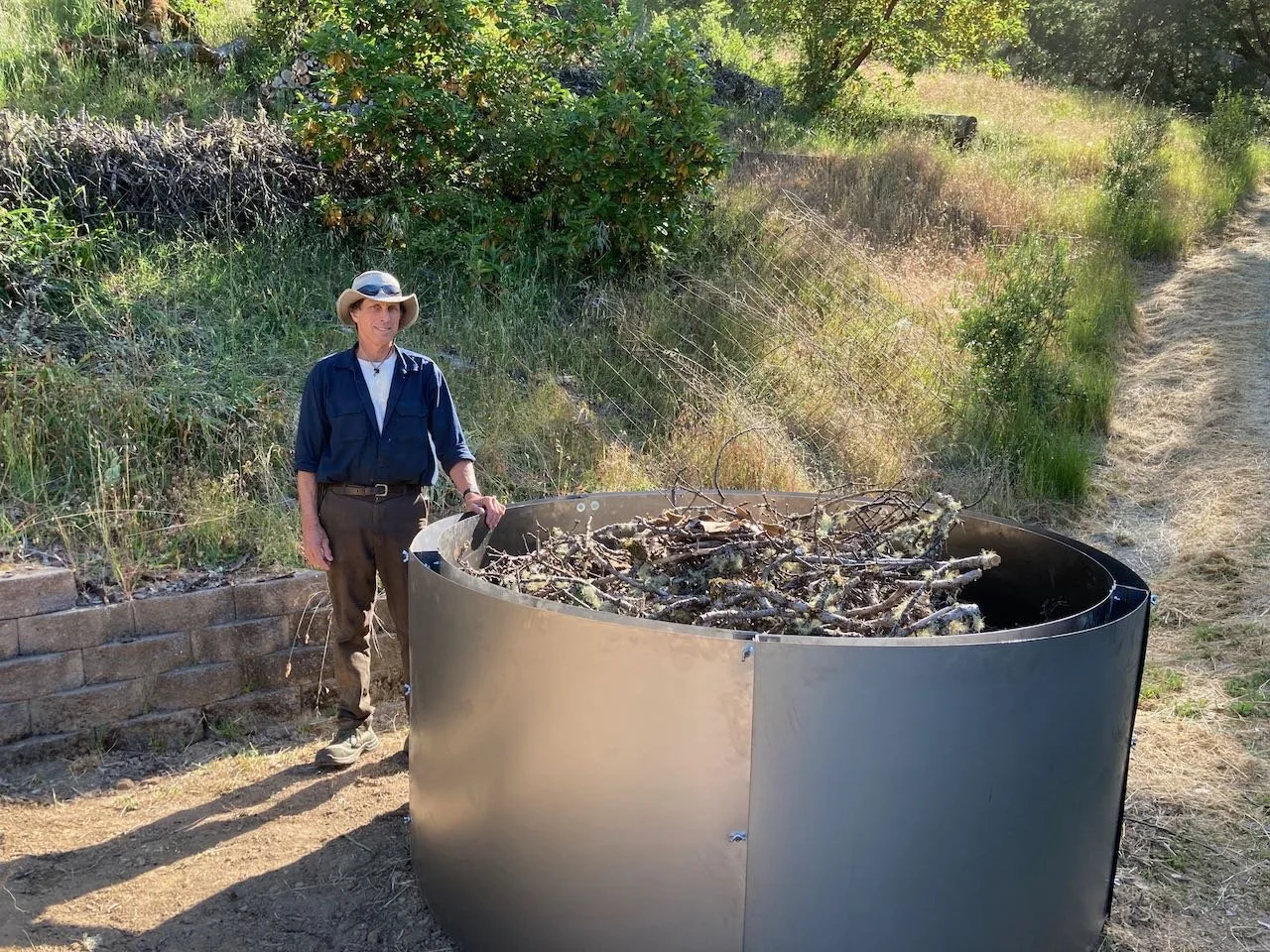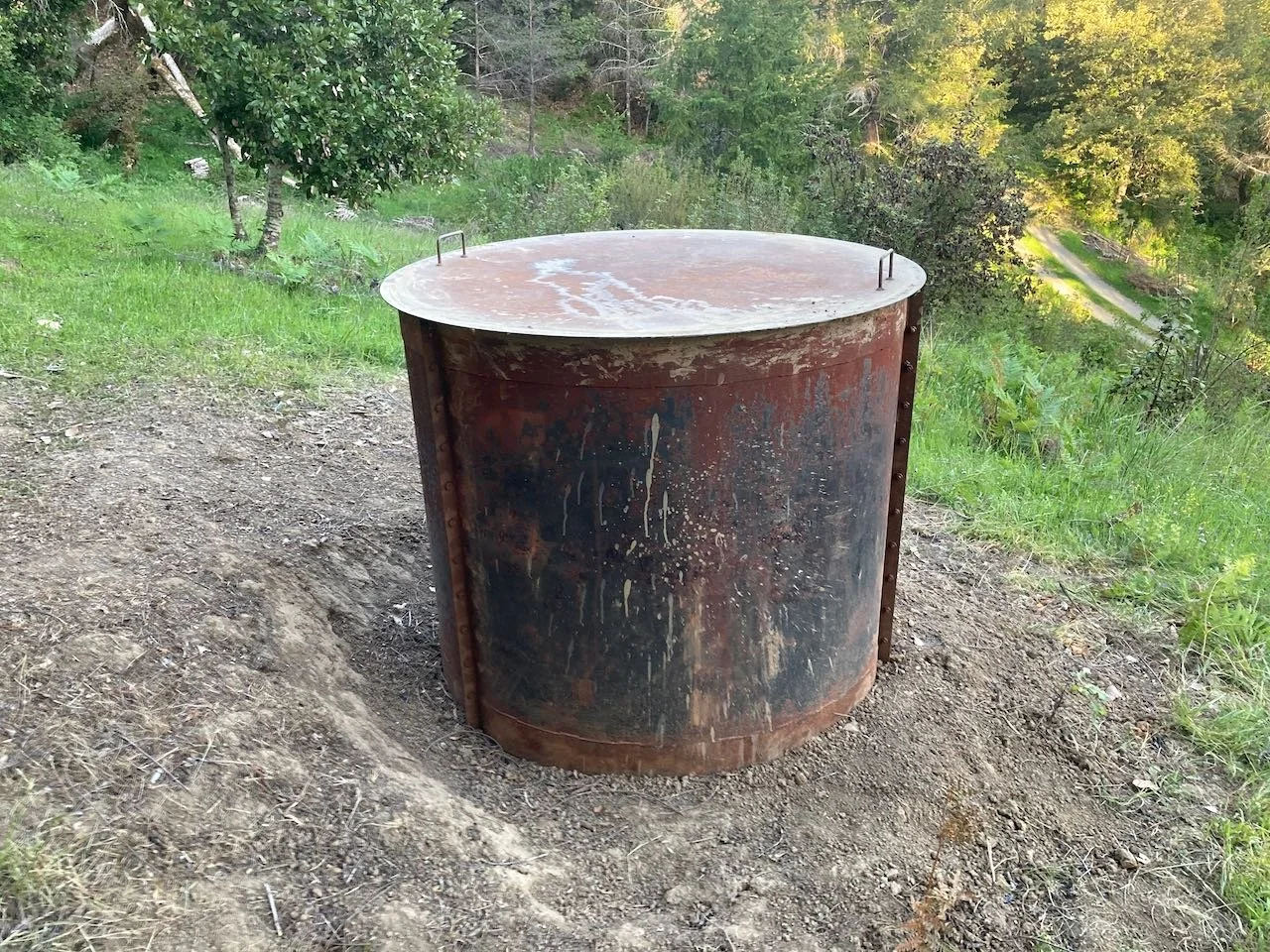“There must be a way for him to monetize this biochar thing.”
Some time after visiting my sister in Connecticut years ago, she reported what her husband had said about my (then) new-found pyrolytic passion. Seen through the lens of his job as a New York investment banker, my excitement about finding a way to sequester carbon and build soil health with free stuff needed to be leveraged into a source of revenue.
Some people I know are making money at “this biochar thing.” Josiah Hunt began making it in pits from bamboo in Hawaii and ended up founding Pacific Biochar, a multi-million-dollar company with a huge stationary plant in Willows, CA. Eric Mayer went from a Stanford Ph.D. in Environmental Science to forming Napachar, providing vineyards with biochar from their own spent vines with a crew and a fleet of portable kilns. Kelpie Wilson designed the Ring of Fire™ kiln used by Eric and hundreds of other people worldwide and derives income from speaking fees and royalties on her biochar handbook. In addition to biochar, Bob Wells, an early adopter on Cape Cod, sells soil amendment made with biochar and dead lobster compost, pyroligneous acid (wood vinegar, another profitable product) that he siphons off from the smoke, and the custom TLUD in which he makes them, which he markets internationally.
There are many other examples, but I wasn’t comparing myself to any of them. I was simply obtaining a dividend from rescuing my home in the woods from a century of forest mismanagement, and paying it forward to rebuild the soil. Having spent forty years as a commercial arborist, I chafed at the suggestion that I wasn’t sufficiently motivated to make money.
Most likely I will continue to char non-commercially, spreading the simple message of small-scale, decentralized pyrolysis. What I call the Black Ripple is an each-one-teach-one initiative, not a marketing scheme. The kiln loan program is designed to be given away to an agency, once it gains traction. I can afford to do this, for which I am grateful because it is work that needs to be done, IMO.
So I will not be participating in The Second Annual Global Biochar Market Survey. “Your participation will help strengthen the global dataset that informs the 2026 Global Biochar Market Report,” the announcement declares, “offering insights on global and regional production, market value, and growth trends, challenges and opportunities across the value chain, end-user demand, innovation, and emerging products…to provide a comprehensive picture of the biochar industry’s size, scale, and global growth potential.” I’m happy for the entrepreneurs whose work aligns with this effort.
There are many folks for whom monetizing biochar would be a fit. Assuming that their business model derives biomass sustainably, I believe their business should succeed. My only concern is that vastly more carbon can be drawn down by the multitudes, with just biomass and a match, than industry can. We tend, in our culture, to evaluate opportunities in terms of what we can get out of them, and ignore those that don’t “pencil out.” Where biochar doesn’t reach the bar of profitability, as it often doesn’t, I fear that we could overlook it.
Last year, in a Forest Stewardship Workshop put on by UCANR, I proposed making biochar from forest waste as an alternative to chipping and burning. The instructors, who worked for the Forest Service, pointed out that biochar markets are weak and denigrated it as a “boutique” practice. I shouldn’t have been surprised, given the extraction model of forestry baked into their viewpoint. The fact is that, for the most part, unless you find a niche, as my aforementioned associates did, biochar is best thought of as an investment, not a commodity. Where it fails the market test, as it does in most cases, I view this as a blessing. Otherwise it would just be taken up as another way to extract value from the forest.
Make biochar. Think of it as a donation to life as we know it on Earth. Mix it with compost and put it in your garden, where it will supercharge your soil, or sprinkle it in the forest, where it will do the same. If you might find a way to monetize it, great, but remember that in order for biochar to “ripple,” most of us will need to practice making it outside of the extraction economy.


